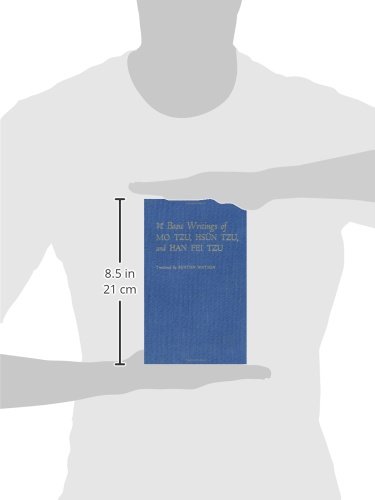
|
|
Product Description
Mo Tzu, Hsün Tzu, and Han Fei Tzu were three of the most important philosophers in ancient China. This collection of their basic writings points to three very different positions within in the spectrum of Chinese thought and reveals the diversity of of the Chinese intellectual tradition.Presenting the principle doctrines of Mo Tzu (470Â391 B.C.) and his followers, early rivals of the Confucian school, this section includes writings on music, fatalism, Confucians, and "universal love"―the cornerstone of Mo-ist philosophy―Hsün Tzu (born ca. 312 B.C.) provided the dominant philosophical system of his day. Although basically Confucian, he differed with Mencius by asserting that the original nature of man is evil, and also expounded on such subjects as good government, military affairs, Heaven, and music.
Representative of the Fachia, or Legalist, school of philosophy, the writings of Han Fei Tzu (280?Â233 B.C.) confront the issues of preserving and strengthening the state through strict laws of punishment and reward. His lessons remain timely as scholars continue to examine the nature and use of power.
Customers Who Bought This Item Also Bought
- Legends of the Warring States: Persuasions, Romances, and Stories from Chan-kuo Ts'e (Michigan Monographs In Chinese Studies)
- A Brief History of Chinese Civilization
- The Songs of the South: An Anthology of Ancient Chinese Poems by Qu Yuan and Other Poets (Penguin Classics)
- Chuang Tzu: Basic Writings
- Mencius (Penguin Classics)
- The Analects (Penguin Classics)
- Tao Te Ching
- The Art of War
- The Yoga Sutras of Patanjali
- Analects: With Selections from Traditional Commentaries (Hackett Classics)
*If this is not the "Basic Writings of Mo Tzu, Hsun Tzu, and Han Fei Tzu" product you were looking for, you can check the other results by clicking this link







